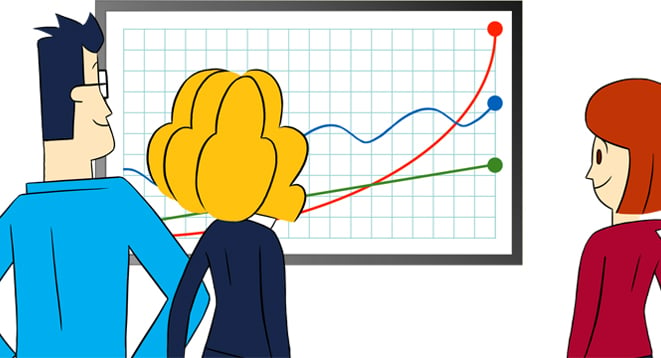
The impact concept has moved from the discussion of benefits, returns and value creation, to 'How much impact?' and 'What is your impact?'. We now have 'impact investors and 'imspiring impact' and lovely new words like 'impactful'. Jeremy Nicholls from The SROI Network feels uneasy.
A couple of years ago if you were reading about measuring performance of social enterprises or other organisations which had a social purpose, you would read about benefits, returns, value creation and, yes, impact. Now it is all about impact, how much impact, what is your impact? We have 'Impact investors' and 'Inspiring Impact' and lovely new words like 'impactful'.
In SROI we also refer to impact, albeit as part of a wider discussion on return: 'What were you returning to your stakeholders, and what was the value of that return?'.
But nonetheless it may seem churlish to suddenly question the way we are starting to focus on impact. Surely this is a ‘good’ thing. Getting people to think about and actively manage their impact and to be able to communicate non-financial returns clearly must help.
Which of course is the first problem. Whether we are talking about social returns, benefits, impacts or value, we are talking about value that is not captured in financial markets or by existing financial measures. We are offering an alternative to financial returns – surely social returns – and yet we talk about 'impact'. All organisations regardless of their aims and objectives have an impact and so, for the non-initiated, impact isn’t and cannot be something unique to social purpose organisations or their investors.
But this isn’t my main concern.
There is something violent about impact. Google the word and you get images of meteors striking earth. Impact is forceful, it is the impact of one thing on another. Or it’s a problem with your teeth or an advertising campaign.
This is the big danger. Words are important. And the language of impact reinforces the problem we are trying to address: of inequality of power.
Impact is about those with power having an ‘impact’ on those who don’t; who become recipients, not involved in the activities, not informing them, and certainly not owning them. It is inherently disempowering. Or at least I have yet to meet someone saying, "I would like you to have an impact on me," or "What we need is for something to have an impact on our community."
No doubt this isn’t intended. Anyone involved in creating impact will recognise the importance of engagement and involvement – though perhaps not empowerment. Giving one group more power means that those with power will have relatively less as a result. And yet every time we say impact we reinforce the message – "I will have an impact on you", "I will change you", "You are dependent on me".
People talk about wanting change and wanting something which will be of value to them. And I think that if we talk about value the next question – How much value? – follows quickly. Yes, we can ask how much impact – but how much value has to be from the perspective of those changing.
Evaluation may perhaps have a tendency to look backwards at what has happened but at its heart it is about value. Trying to do things that are of value and implicitly of value to someone. Financial value is a special case, one type of value that emerges through and is revealed by exchange of goods and services between people. But of course there are many other types of value, and fortunately this language lives on through blended value (blendedvalue.org), social value (the Social Value Act).
It is probably a bit futile to expect all this to change. But at least we can pause for a moment and think about what we are doing. The SROI Network has changed its training materials to emphasise 'value'. Our 'Impact map' has become the 'Value map'. Changes to our SROI Guide will have to wait until the next version – but in the meantime, we will be focusing on 'value'.
This article was first published on PioneersPost.com, the online newspaper for social entrepreneurs.
-1.jpg?width=232&name=GT%20Sinzer_logo_screen_descriptor%20(1)-1.jpg)
